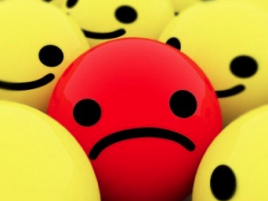Model Yourself On People You Respect
By Mukunda Goswami | Jan 13, 2012

The following article was posted in the “Inner Voice” column of the Hindustan Times, one of India’s largest English language daily newspapers, on 17 July 2004.
Anxiety is a bummer. When it strikes, some resort to counselling and others to drugs, legal and illegal. Distress is what nobody wants, like garbage in your bedroom.
Wished for or not, feelings of quiet desperation, call it depression, descend on us all. When it’s a daily occurrence enduring for all one’s waking hours, something drastic needs to be done. Switching on the tube, shopping, going to the movies, and bingeing on food or alcohol just don’t get it, not long-term anyway.
What we do and the people we see most often affect us. Adages like Shaw’s ‘you are what you eat,’ and ‘A man is known by the company he keeps’ reflect this.
The jury’s still out on the ‘heredity versus environment’ debate, and genetic engineering will further confuse things. The foundling baby Karna was raised by a charioteer and displayed extraordinary martial skills in later life, but Patty Hearst, daughter of media magnate William Hearst, lived over two decades in prison because of crimes due to an alliance with the Black Panthers.
Association, particularly intimate association — chosen or otherwise — rules us, just as ingesting tablets unknowingly alters behaviour and physiology. One can contract malaria or TB by mosquito sting or by breathing a sick patient’s single bacterium. One scant cell can do great harm; disease knows no mercy.
The Bhagawat Purana (7.11.35) says symptoms or tena (behaviour) ullimately determine character, and character is what finally determlnes mental state. Hanging out with the rich, successful, popular, sexy set shreds inner peace to bits.
If we model ourselves internally and externally on people we respect, maintaining their values, we unconsciously exhibit their qualities, whatever our everyday life and work circumstances.















